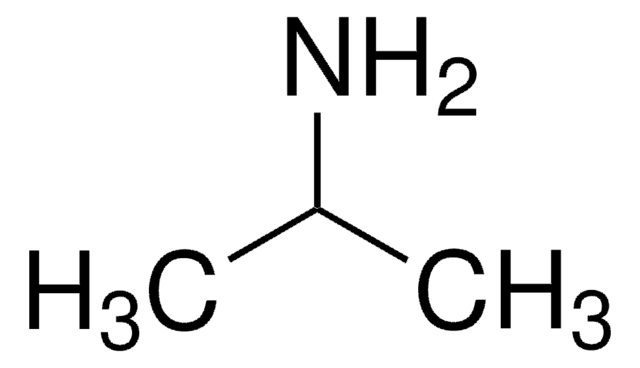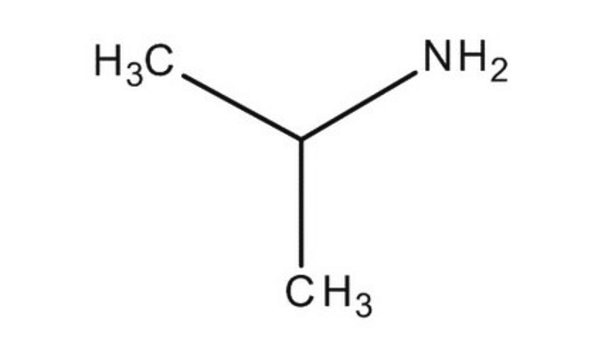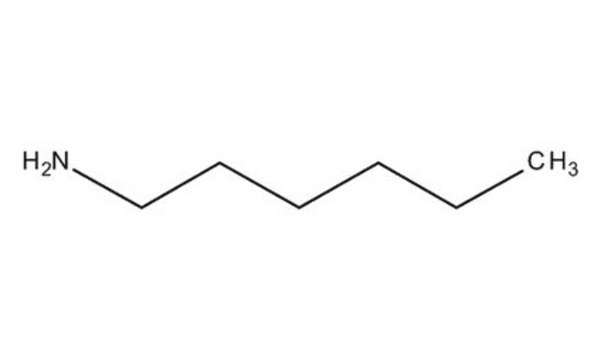8.07477
Propylamine
for synthesis
Synonym(s):
Propylamine, 1-Aminopropane
About This Item
Recommended Products
vapor pressure
330 hPa ( 20 °C)
Quality Level
Assay
≥99.0% (GC)
form
liquid
autoignition temp.
325 °C
potency
370 mg/kg LD50, oral (Rat)
400 mg/kg LD50, skin (Rabbit)
expl. lim.
2.1-13.6 % (v/v)
pH
12.6 (20 °C, 100 g/L in H2O)
mp
-83 °C
transition temp
flash point <-35 °C
density
0.72 g/cm3 at 20 °C
storage temp.
2-30°C
InChI
1S/C3H9N/c1-2-3-4/h2-4H2,1H3
InChI key
WGYKZJWCGVVSQN-UHFFFAOYSA-N
Application
- Computational study of the unimolecular and bimolecular decomposition mechanisms of propylamine: A computational analysis revealed detailed reaction mechanisms for propylamine, focusing on dehydrogenation processes which could be crucial for developing better industrial synthesis techniques (Almatarneh et al., 2020).
- Structural transformation and tuning behavior induced by propylamine concentration in hydrogen clathrate hydrates: This study provides fundamental understanding of guest-host distributions in clathrate hydrates, which are vital for applications in gas storage and separation technologies (Park et al., 2015).
- Molecular association of small amphiphiles: Origin of ionic liquid properties in dibutyl phosphate/propylamine binary mixtures: The study explores the dynamic properties of propylamine mixtures, which could inform the development of new materials with ionic liquid-like characteristics for various industrial applications (Liveri et al., 2018).
Analysis Note
Density (d 20 °C/ 4 °C): 0.716 - 0.717
Water (K. F.): ≤ 0.20 %
Identity (IR): passes test
Signal Word
Danger
Hazard Statements
Precautionary Statements
Hazard Classifications
Acute Tox. 3 Dermal - Acute Tox. 3 Inhalation - Acute Tox. 4 Oral - Eye Dam. 1 - Flam. Liq. 2 - Met. Corr. 1 - Skin Corr. 1B - STOT SE 3
Target Organs
Respiratory system
Storage Class Code
3 - Flammable liquids
WGK
WGK 1
Flash Point(F)
-31.0 °F
Flash Point(C)
< -35 °C
Certificates of Analysis (COA)
Search for Certificates of Analysis (COA) by entering the products Lot/Batch Number. Lot and Batch Numbers can be found on a product’s label following the words ‘Lot’ or ‘Batch’.
Already Own This Product?
Find documentation for the products that you have recently purchased in the Document Library.
Customers Also Viewed
Our team of scientists has experience in all areas of research including Life Science, Material Science, Chemical Synthesis, Chromatography, Analytical and many others.
Contact Technical Service











